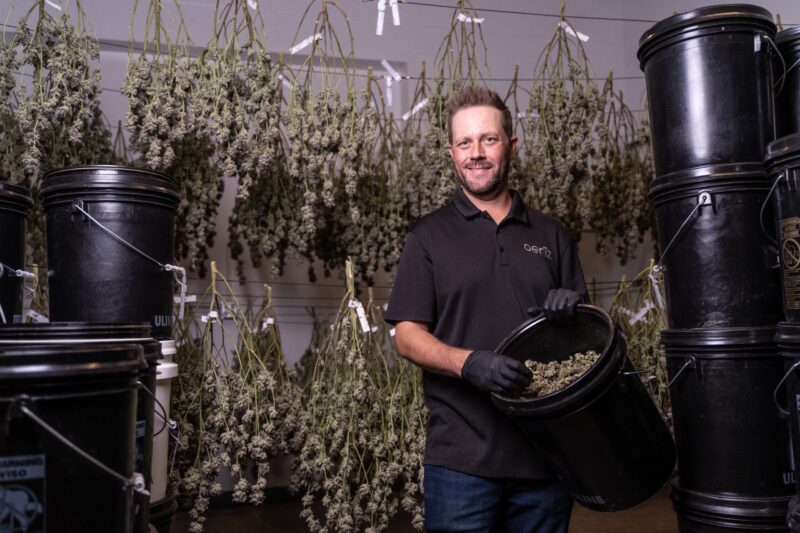Now more than ever, cannabis cultivators should focus on sustainable practices that minimize environmental impacts. We know that agriculture uses more water than any other source and also wastes large quantities through inefficient techniques. Cannabis agriculture is a major contributor to this environmental destruction, utilizing significantly more water to cultivate than other commodity crops.
And that’s just one part of the equation. Soil erosion is one of many other critical threats that can stem from poor cultivation practices. Not only does soil erosion harm fertile land, but it can contribute to pollution in waterways and extend its detrimental impacts on fish and other wildlife.
Technological and scientific advancements have made it easier for some cannabis cultivators to truly achieve sustainability. While these advancements range from AI technology to drones, they also include improved versions of classic techniques. Aeroponic cultivations are a great example of how cultivators can achieve sustainability without complicating the process.
Minimal Water Usage
Aeroponic cultivations use less water than soil or hydroponic cultivations, by far. Traditional soil-based growing methods are estimated to waste up to 50% of the water used due to evaporation, runoffs, and wind. By cutting back on water usage and thus water waste, cultivators can reduce their environmental impacts.
Compared to hydroponic cultivations, which use much less water than conventional farming, aeroponic cultivations still come out far superior. Hydroponic growing methods involve submerging plants in nutrient-rich water or feeding them a stream of water and nutrient solutions, which creates wastewater.
Aeroponic cultivations, on the other hand, use just the exact amount of water and nutrients the plants need through precision-dosed mists. This can be taken a step further with the use of a closed-loop system to recycle the small amount of nutrient and water waste produced. With closed-loop systems, anything that is not used on one plant gets recycled for use in the next.
Lowered Rate Of Pesticide Contamination
Pests are a normal, unavoidable part of agriculture. As a result, pesticides are a popular solution to prevent problems with weeds, diseases, and dangerous insect infestations. But pesticides come with a serious environmental impact, contributing to pollution of the air, water, and soil, which extends into wildlife populations.
With aeroponic cultivations, plants are much less likely to develop disease and attract pests because of the controlled environment. Plant-to-plant contact is minimized as well, since the plants are suspended in the air. This makes it much less likely for diseases to spread. The controlled environment also makes it more difficult for pest problems to proliferate, reducing the overall demand for pesticides.
Prevention of Soil Erosion
Aeroponic cultivations don’t use soil at all. Unlike hydroponics, this cultivation technique doesn’t require substrate, either. Instead, the exposed plant roots are directly misted with a nutrient/water solution.
Soilless farming has been determined to be a much more environmentally friendly alternative to traditional farming methods. Since aeroponic cultivations don’t use soil or substrates, they remain one of the best options for minimizing environmental impacts.
Leading The Way with Sustainability
Sustainability should be a top consideration for all cannabis companies, regardless of their role in the industry. It’s an ongoing effort that can take years to refine, but it’s worth the work.
Sustainable cultivation practices aren’t just good for our planet—they produce better cannabis, too. By providing just the right amount of water and nutrients, and reusing all waste, plants can get exactly what they need to grow into aromatic, terpene-rich, award-winning cannabis.
Have an opinion on sustainable cultivation? Got thoughts on other important cannabis topics? Submit your op-ed for consideration.
Photo by Sarah Dorweiler on Unsplash







